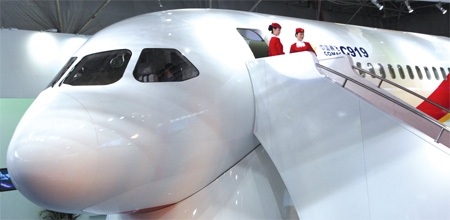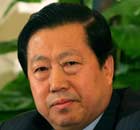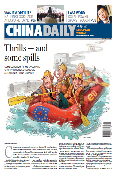Soul searching for Obama in Asia
Updated: 2010-11-09 08:03
By Chen Weihua (China Daily)
For US President Barack Obama, whose Democratic Party took a "shellacking" in the midterm election, his 10-day trip to Asia, that began on Friday, should be one of soul searching.
But that has not seemed to be the case so far.
With unemployment in the United States staying stubbornly above 9.5 percent for 15 consecutive months, Obama promised that the trip would focus on job creation.
However, the some 50,000 new US jobs that might be created by the $10 billion business deals with India are mostly in the defense industry. These are jobs to build weapons that could escalate a regional arms race. They are hardly jobs for people to be proud of.
Given the lobbying of the US defense industry, which employs an estimated 3 million people, it is perhaps not surprising that the US president serves as a broker for military contractors. The US is eager to replace Russia as the biggest arms supplier to India, the world's largest arms importer last year.
In fact, it is not just the arms deals that are worrying, both Obama and his Secretary of State, Hillary Clinton, display a Cold War mentality in dealing with other countries, particular Asian countries. By grouping countries into different categories such as allies, partners and rivals, the Obama administration is saying that in essence it has not changed much from the previous administration and it won't be able to remain impartial in mediating disagreements between these nations.
Obama should ask himself why the Muslims in Indonesia, where he spent part of his childhood, stage protests instead of welcoming him.
Obama has not acted to end the war in Afghanistan as he promised. Rather, he has made it his own war. It is now the longest war in US history.
Obama should face up to reality and no longer live in denial, he should tell the US people some hard truths. Those companies that secured deals in India are also the ones that have moved tens of thousands of manufacturing jobs overseas.
He should say clearly that there is nothing wrong with that for the US, since the country gains much more in this global division of labor than developing countries such as China and India.
Statistics show that nearly half of the earnings reported by companies on the S&P 500 are from overseas. Fast growth in China and India has fueled the US economy, rather than balked it.
As a national leader, instead of repeating the dry rhetoric himself, Obama should put a stop to the continuous China bashing in the US, which blames China for US domestic economic woes, from unemployment, housing market bubbles to trade deficits and fiscal debts.
There are more honest voices in the US these days.
US economist and money manager Zachary Karabell wrote in the recent issue of Time magazine that: "China is far from perfect and seeks its own advantage, but holding it accountable for our domestic problems is beyond anachronistic. It reflects a dangerous refusal to deal with the world as it is".
New York Mayor Michael Bloomberg, who was in Hong Kong while Obama visited India, also criticized the China bashing in the US: "I think in America, we've got to stop blaming the Chinese and blaming everybody else and take a look at ourselves," Bloomberg said.
Bloomberg also criticized the decision by the US Trade Representative's office to probe China's clean energy industry. "Let me get this straight: There's a country on the other side of the world that is taking their taxpayers' dollars, and trying to sell subsidized things so we can buy them cheaper and have better products, and we're going to criticize that?" asked Bloomberg.
If Obama does not choose to tell the truth about Asia and China as Mayor Bloomberg did, it means that he has not learned from what he himself described as the Democrats "shellacking" in the midterm election.
The author is Deputy Editor of China Daily US Edition. He can be reached at chenweihua@chinadaily.com.cn.
(China Daily 11/09/2010 page8)
Paper's Digest

Chinese jet takes on Big 2
First large commercial plane set to ride on demand for aircraft as economy grows.
Super-CPU only for domestic eyes
Specials

Chinese jet takes on Big 2
First large commercial plane set to ride on demand for aircraft as economy grows.

Gaining ground
Doing business in china for westerners has come a long way, Peter batey says.

Safeguarding environment a priority
China continues to face mounting pressure to curb environmental degradation, despite progress in reducing pollution over the last five years, the environmental protection minister warned.
